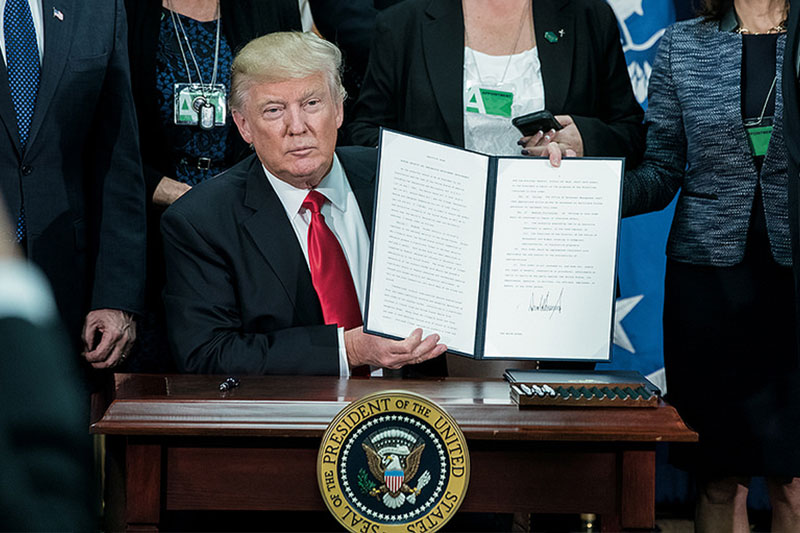The Trump Administration just announced its intention to allow states to adopt and develop rigorous work requirements for welfare recipients. The new guidance follows on the heels of studies which say work enhances human dignity, and the emotional, physical and psychological health of welfare recipients.
“(The Center For Medicaid Services) will support state efforts to test incentives that make participation in work or other community engagement a requirement for continued Medicaid eligibility or coverage for certain adult Medicaid beneficiaries in demonstration projects authorized under section 1115 of the Social Security Act,” the agency announced.
CMS went on to suggest various strategies that states could adopt today, to help welfare recipients feel more productive at the work. After all, work promotes wealth accumulation, and is associated with longer lifespans. Furthermore, several other studies have found that unemployment is linked to bad health, high mortality and bad mental health – which would further increase the rates at which welfare queens use the emergency room.
“CMS supports state efforts to enable eligible individuals to gain and maintain employment,” the agency said. “Optional Medicaid programs such as the Medicaid Buy-In, for example, allow workers with disabilities to have higher earnings and maintain their Medicaid coverage.”
“For beneficiaries who are able to work but have been unable to find employment, some states encourage employment through concurrent enrollment in state-sponsored job training and work referral, either automatically or at the option of the Medicaid beneficiary,” the agency says. “A number of states have also initiated programs to connect nondisabled Medicaid beneficiaries to existing state workforce programs.”
Kentucky has just received form agency approval to implement stringent work requirements for welfare and food stamps. There are approximately 650,000 Medicaid beneficiaries in Kentucky alone. Several of these individuals do not earn a good income or simply not work at all. As per the newly introduced requirements, the beneficiaries would have to either work, train, or at least volunteer for 20 hours every week so that they could further receive the benefits.
As per a research by the Foundation for Government Accountability, the total number of Medicaid beneficiaries have doubled since the year 2000. As of now, almost 75 million people are enrolled in the program, which also includes around 28 million full adults who are capable of work and are not suffering from any physical disease. In addition, approximately 52 percent of the Medicaid beneficiaries who are able-bodied do not work.
“Today’s guidance is a critical step for the Medicaid program and millions of able-bodied adults trapped in dependency,” says Tarren Bragdon, the CEO of the foundation. “Work is the key to their futures. With today’s guidance, states have a clear roadmap to move millions of able-bodied adults from welfare to work and preserve resources for the truly needy.” “We expect rapid adoption of this new option in the states,” he had said. “We applaud the Trump administration’s active commitment to reducing dependency and moving Americans from welfare to work.”
Douglas Holtz-Eakin, the president of the American Action Forum, said “It is a ‘community engagement’ requirement that may be satisfied by work, volunteer work, education, career planning, job training, and other activities. The work requirements will be subject to an evaluation to determine their effectiveness.”























